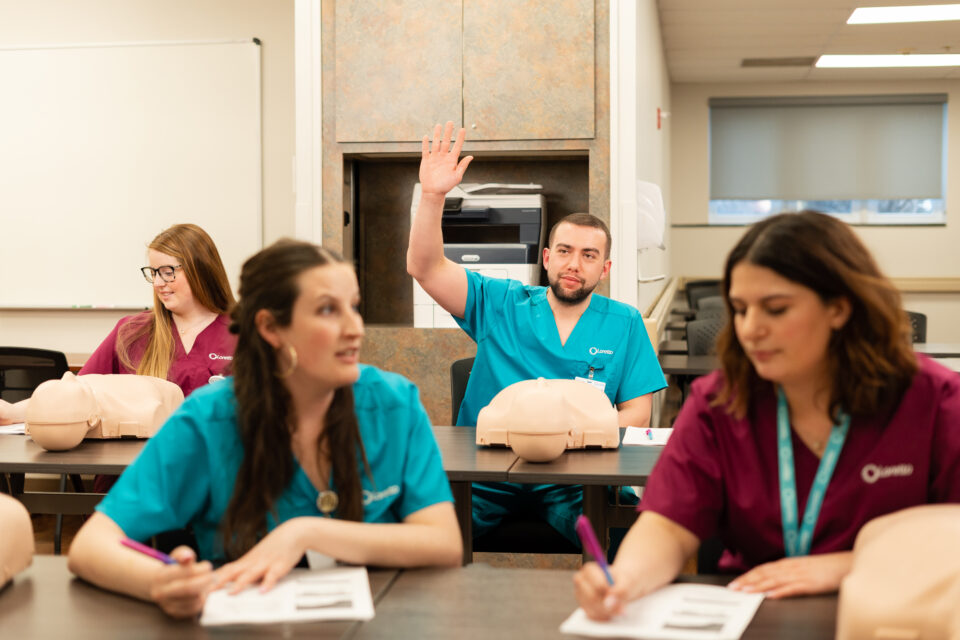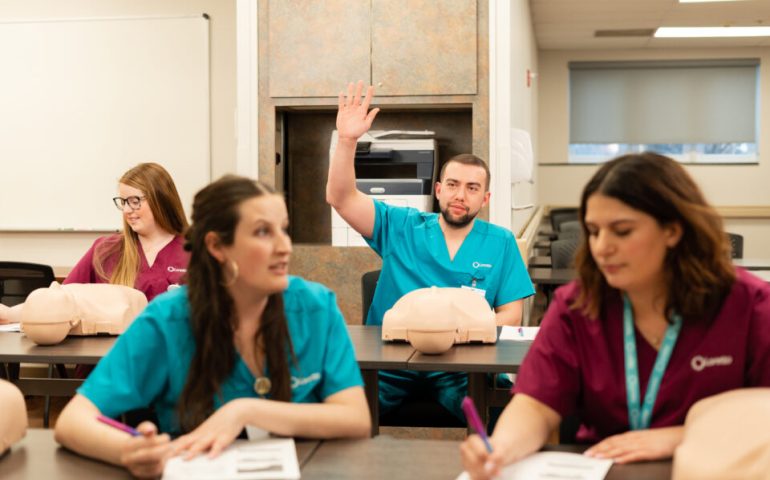
Empowering a New Generation of Healthcare Professionals
Introduction
The healthcare industry is a dynamic and rewarding field that offers a wide range of career opportunities. As the demand for healthcare professionals continues to grow, so does the need for comprehensive and accessible training options. In this article, we explore the various healthcare career training opportunities available to aspiring professionals, from traditional educational programs to innovative online platforms. By understanding these options, individuals can embark on a fulfilling journey towards making a positive impact on people’s lives.
Exploring Traditional Healthcare Education
“The best way to predict the future is to create it.” – Peter Drucker
Traditional healthcare education provides a time-tested pathway to becoming a qualified healthcare professional.
Medical Schools for Aspiring Physicians
Medical schools offer rigorous programs that prepare students to become doctors, equipping them with the knowledge and skills needed to diagnose and treat patients.
Nursing Programs for Compassionate Caregivers
Nursing programs train individuals to become registered nurses (RNs) or licensed practical nurses (LPNs), providing essential care and support to patients.
Real-Life Example: A Medical School Journey
Dr. Smith, a renowned cardiologist, attended a reputable medical school. Through years of intensive training and hands-on experience, he developed expertise in treating heart diseases and saving lives.
Embracing Technological Advancements: Online Healthcare Training
“Technology can become the “wings” that will allow the educational world to fly farther and faster than ever before – if we will allow it.” – Jenny Arledge
Advancements in technology have revolutionized healthcare education, offering flexible and accessible training options.
Virtual Medical Simulation
Virtual medical simulation platforms allow aspiring healthcare professionals to practice procedures and patient care in a risk-free environment.
Online Nursing Programs
Online nursing programs enable individuals to pursue a nursing degree while balancing work and personal commitments.
Real-Life Example: Virtual Medical Simulation for Surgeons
Dr. Johnson, a surgical resident, used virtual medical simulation to hone his surgical skills. The simulation allowed him to perform complex surgeries, enhancing his confidence and expertise.
Diverse Allied Health Training Programs
“Healthcare is an ever-changing field, constantly evolving and adapting to new technologies and discoveries.” – Dianne Mead
Allied health professionals play crucial roles in the healthcare system. Numerous training programs cater to those interested in allied health careers.
Dental Hygiene Programs
Dental hygiene programs train students to become dental hygienists, promoting oral health and providing preventive dental care.
Radiologic Technology Programs
Radiologic technology programs prepare individuals to become radiologic technologists, conducting medical imaging procedures such as X-rays and CT scans.
Real-Life Example: Dental Hygienist Impact
Sarah, a dental hygienist, works in a community dental clinic, educating patients about oral hygiene and performing cleanings. Her efforts contribute to improved dental health in the community.
Short-Term Certification Programs: A Pathway to Specialization
“Success is not final, failure is not fatal: It is the courage to continue that counts.” – Winston Churchill
For those seeking quicker entry into the healthcare field or specialization, short-term certification programs offer an efficient route.
Phlebotomy Certification
Phlebotomy certification programs train individuals to collect blood samples for medical testing and donations.
Medical Coding and Billing Certification
Medical coding and billing certification programs equip individuals with the skills to handle healthcare billing and coding processes.
Real-Life Example: Phlebotomy Technician
John, a certified phlebotomy technician, plays a vital role in a hospital’s lab department, skillfully drawing blood from patients for diagnostic testing.
Clinical Experience and Internships: Bridging Theory and Practice
“Education is the passport to the future, for tomorrow belongs to those who prepare for it today.” – Malcolm X
Hands-on clinical experience through internships is invaluable in healthcare education, allowing students to apply theory to real-world situations.
Hospital Internships
Internships in hospitals give students exposure to various departments, enhancing their clinical skills and understanding of patient care.
Community Health Clinic Experiences
Interning at community health clinics offers opportunities to work with diverse patient populations and underserved communities.
Real-Life Example: Hospital Internship Impact
Jane, a nursing student, completed a hospital internship, shadowing experienced nurses and assisting in patient care. Her internship experience solidified her passion for nursing and sharpened her clinical abilities.
Continuing Education and Lifelong Learning: Staying Current in Healthcare
“The more that you read, the more things you will know. The more that you learn, the more places you’ll go.” – Dr. Seuss
In the ever-evolving healthcare industry, continuous learning and professional development are essential for staying current and providing high-quality care.
Continuing Education Programs
Continuing education programs offer healthcare professionals opportunities to expand their knowledge and skills in specialized areas.
Conferences and Workshops
Attending healthcare conferences and workshops allows professionals to learn from industry experts and network with peers.
Real-Life Example: Continuing Medical Education
Dr. Adams, an experienced surgeon, attends annual medical conferences to learn about the latest advancements in surgical techniques, ensuring he provides the best care to his patients.
Conclusion
“The future of healthcare is all about providing the right care at the right place and the right time.” – Lloyd H. Dean
Healthcare career training offers a multitude of opportunities for aspiring professionals to make a meaningful impact on people’s lives. Traditional educational pathways, complemented by technological advancements and online resources, provide diverse avenues for individuals to pursue their passion for healthcare.
Allied health programs, short-term certifications, and internships cater to those seeking specialization and practical experience. As healthcare is an ever-changing field, continuous learning and staying updated with the latest advancements are crucial for providing high-quality care.
Embracing healthcare career training opportunities empowers individuals to become compassionate, knowledgeable, and skilled healthcare professionals, making a positive difference in the lives of patients and communities alike.










